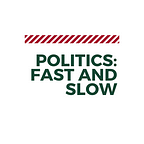We’re getting environmentalism wrong, and it could lead to disaster.
Over the past couple of years, public concern over the oceans — specifically plastic — has been growing. After the BBC’s Blue Planet documentary series was released, people were more aware of the issues that plastics were causing in the ocean environment. We had been swept away by a tidal wave of environmentalism.
This was mainly due to the sixth and final episode of the series, in which emotive images of the interaction between plastic and wildlife were shown. In particular, the footage of a pilot whale, carrying its dead calf, shocked audiences in the UK and the whole of the world. As was explained by David Attenborough, the whale’s milk had been contaminated by microplastic toxins, which killed the calf as it drank the milk.
And, indeed, plastics and the microplastics that they break down into are extremely damaging to oceanic life. It is estimated that over 100 million marine animals die due to plastics and debris every year, with many more seabirds and land animals also suffering. If the issue can’t be solved, and the consumption of…
